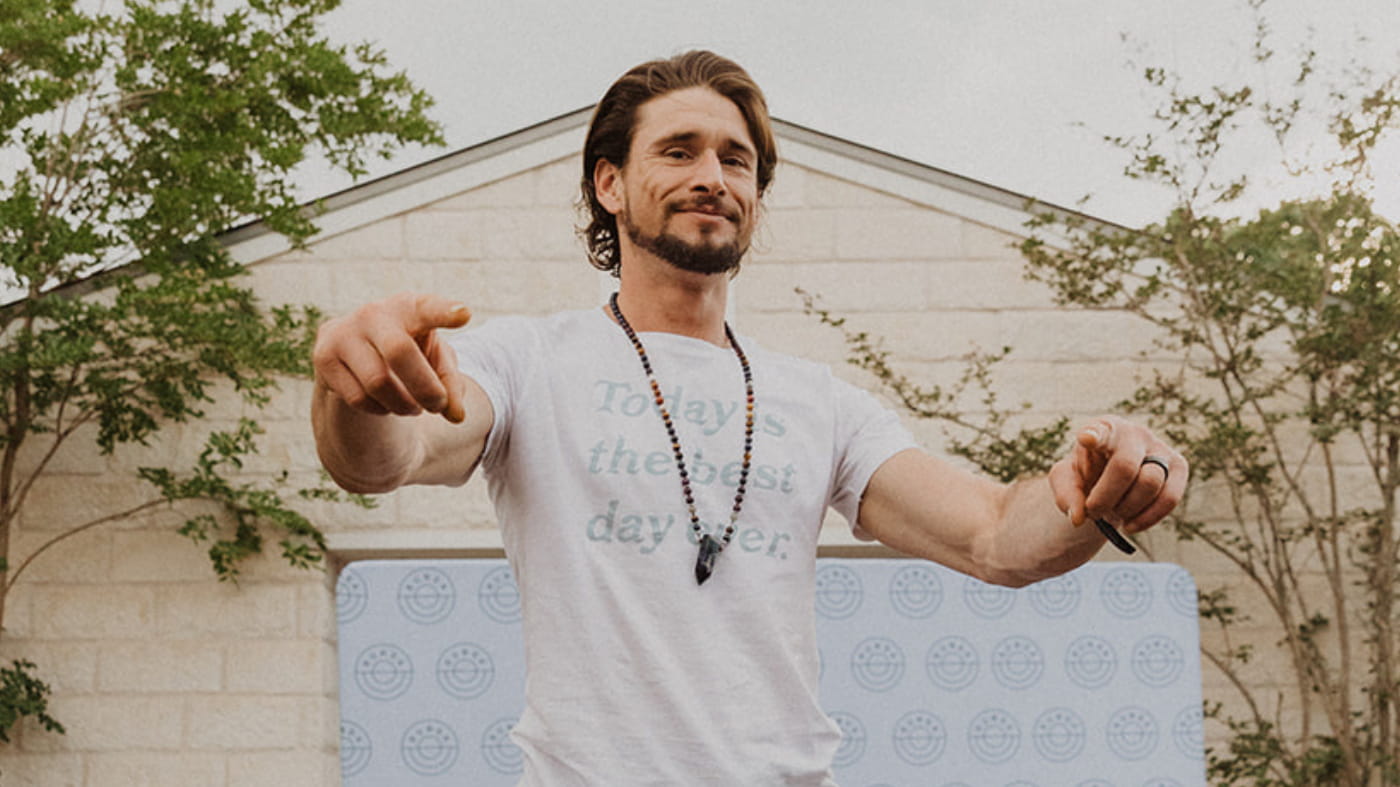July 31, 2022
Photo Source: Runga/Tammy Horton Photography
Welcome back to my Precepts series—inspired by meaningful thoughts, insights, and discoveries I have during each week, and intentionally designed to help make your life just a little bit better.
You can find the series in its entirety here.
Precept 31: Chariots Of Fire
A few evenings ago, my sons and I watched the classic film Chariots of Fire. The movie is based on the true story of two British athletes in the 1924 Olympics: Eric Liddell, a devout Scottish Christian who “runs for the glory of God,” and Harold Abrahams, an English Jew who runs to overcome prejudice. At a key point in the story, Eric refuses to run his 100m distance race in the Olympics because the race happens to be on a Sunday, and Eric deeply desires to honor the Lord's Day. I won't spoil the story for you, in case you haven't yet seen it, but at one key point in the movie, Eric reads the Bible verse from Samuel 2:30, “He who honors me, I will honor.”, and he then proceeds to go out and run one of the best races of his life.
Why am I telling you this? Well, if you read my Rambling Sabbath post, then you're well aware of the multitude of benefits derived from having one complete, luxurious rest day each week – a day on which you are able to catch just a tiny glimpse of what eternal bliss and rest forevermore will be like in the afterlife. One of the best parts of my week is waking up each Sunday morning and knowing I have nothing to do but worship God, play my guitar, hit a few tennis balls, go on adventures, be with my family, feast, and generally just “chillax.” Eric Liddell is a perfect example of someone who also recognizes that, and also recognizes that “keeping the Sabbath” is a core part of glorifying and being in union with God
Because we are a country founded on Christian principles, a hundred years ago in America, you would have been hard-pressed to find just about any business open on the Sabbath. People knew what was good for them, and knew there was and is deep wisdom behind the concept of including a full rest day in each week. So on this day, people were relaxing. Going to church. Helping each other. Having grand meals. Hiking. Swimming. Fishing. Playing. But nowadays – aside from a few random restaurants that don't seem to be open for Sunday dinners – it's pretty difficult to find any establishment that is closed on a Sunday. Worse yet, Sundays are often devoted to the “worship” of sporting gods and goddesses in a giant arena, where people pay money to participate in one of the most glaring examples of modern commercialization of the Sabbath.
So frankly, for me at least, it's hard these days to honor the Sabbath. It's hard to make sure I have all my groceries stocked up so I don't need to go to the grocery store to prepare a Sunday meal; hard to turn down Super Bowl party invitations (which, oddly enough, are usually from my Christian friends); hard to not dive into extra work and business catch-up with those several extra “free” hours I have on Sunday; and hard to creatively figure out ways to not spend money or frequent business on Sunday. A big part of this is that I grew up as an average Christian in America: knowing that I was supposed to honor the Sabbath day and keep it holy, but treating that commandment as more like a friendly suggestion that is, in actuality, pretty much impossible to follow in modern day times (though it really isn't impossible, once you begin to try).
Anyways, at one point during the Chariots of Fire, a young boy is chided for throwing a football on Sunday. Here's the thing: I think that's “too much.” I don't think Sunday recreational sports are wrong. Nor is helping your neighbor. Nor is keeping a hospital open for emergency treatments. Nor is going on a bike ride. Heck, if on a random Sunday, a whole bunch of athletes want to wander into an arena and beat each other up because they love doing it, and a whole bunch of people want to go watch those athletes for free because they find it relaxing to go watch a good game, then I think that's even OK, since nobody is paying for or profiting from any of it, and it's all just for the love of the game.
But I want to encourage you to approach your Sundays (or Saturdays, if that's your Sabbath) with more reverence, honor, and appreciation for this special day of rest. Just imagine: if we all did that, then more and more businesses wouldn't be open on Sunday, and we could eventually return to an easier, less stressful weekend in which we could barely even work or frequent a business on a Sunday if we wanted to. We'd finally have an official day of rest each week, and having it wouldn't be weird or out-of-the-ordinary. Problem is, most folks won't do this – because who wants to tell their son he can't play in the basketball tournament finals since they're on a Sunday; or tell their daughter she shouldn't go to the movie matinee with her friends on a Sunday afternoon; or tell themselves they need to skip that afternoon of work catch-up on a Sunday? See, most folks aren't wired up to be world changers. How about you? If you're on the fence, read this.
Precept 32: Legacy And Pride
Whether you have children or plan on eventually having children, I'll wager that you would like those children to have some sense of legacy, an association of healthy pride in the family name, and a deep sense of belonging within the family. For example, I want my sons to know what it means to be a Greenfield, to know what a Greenfield man or woman stands for and holds dear, to know the Greenfield family values, to understand the Greenfield mission statement, to be intimately familiar with the Greenfield family constitution, and to be a valued and important part of the entire Greenfield legacy plan I discuss in episodes such as my podcast with Rich Christiansen of the Legado Family Foundation.
Why is this so important? I look at it this way: every close-knit tribe has a set of rules and laws, a common language, valued traditions, a story, a hierarchy, traditions, common friends, and even common enemies. The classic and all-too-common rags-to-riches-to-rags scenario that plagues the modern family is often due to a near absence of these types of “tribal” concepts woven into the family. A child grows up somewhat alienated or unfamiliar with what it means to possess their last name, and what is expected of them because they have that last name. In contrast, a child who can recite the family mission statement, explain the family crest, memorize the family values, and know the family traditions, rituals, and routines is far more likely to carry those valuable tribal elements forward into the next generation and likely build upon those elements to create even greater proactive personal, financial and impactful success for subsequent generations.
They'll also be far less likely to succumb to common temptations. I envision a future in which my sons are, say, offered drugs at a party and confidently say, “I'm a Greenfield, and I hold my body sacred as a temple of God,” or are tempted by porn or promiscuous sex or adultery and say, “I'm a Greenfield man, and we care for women and hold them dear as fellow human beings created in the image of God, treating them as queens and princesses,” or are given an opportunity to take a cheat or shortcut in a competition, race, or other event and say, “I'm a Greenfield, and I do what is right no matter what and no matter how painful it is because I am radically honest and transparent.”
See what I mean? Legacy goes far beyond simply building something like generational wealth to building nobility, honor, and pride in your children, so that they can grow up to be dependable human beings who will make this world a better place. So if you aren't already doing it, plan on how you are going to weave values and traditions into your own family, and make your children proud of having their last name and intimately familiar with what it truly means to have their last name. Listen to my podcast with Rich Christiansen or read this article about legacy to learn more.
Precept 33: Consequences
How often do you “future project” the consequences of your actions? Especially in a modern era of e-mails, task management software, organization systems, and a near obsession with productivity and checklist completion, we often tend to rush through to-do lists and assignments without fully pondering the consequences of our decisions.
For example, before you agree to take on a project, do you sit down and ask yourself if you truly and authentically want to do it, or if you're simply taking it on to “get somebody off your back” or to please a person? Before you say, “Let me get back to you on this,” or “Give me a few days to think about it,” ask yourself if you are creating false hope for someone by simply delaying the flat-out no that you know is going to be your ultimate decision anyways. Before you reply in anger, excitement, frustration, or angst to a social media comment or off-the-cuff remark, ask yourself if you are truly in the right mental and spiritual space to be responding (usually, the answer to that question is “No”!). Before you give someone advice, reply to a message, take a phone call, or send a text, try to take at least one deep breath and pause to consider the consequences of your decision. Most people just don't do that. But it's not hard once you make a habit, and it pairs perfectly with the type of mindful presence I discuss here and the Golden Rule living I discuss here.
So consider the consequences. Try it with every decision you make this week. If your experience is anything like mine, you'll find that people will truly appreciate you thinking ahead, and you'll make much better decisions.
That's it for this week! Please leave your thoughts below if you have questions, comments, or feedback. I read them all!














I love the concept of returning back to a Holy rest day each week – our current culture pushes the “hustle & grind” mentality so much & it is so sad because it really is a destructive & empty way to live… feeling constantly burnt out, exhausted, “less than” if you’re not chronically “doing” , & of course that takes a huge toll on our relationship with friends/family, ourselves & above all, God!
Bro! Watching you transform before our eyes is so heartwarming and inspiring! It is our purpose in this life and your example and words truly give me hope for my own transformation… thank you for finding and being you!!!
appreciate the comment Matt 🙏